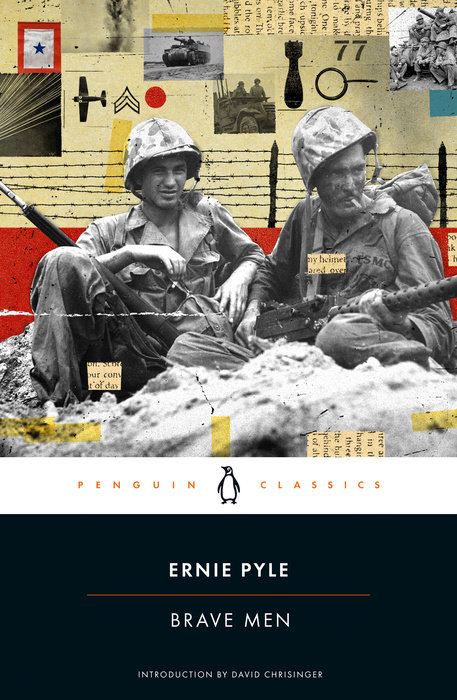From the spring of 1942 to the late summer of 1944, Pyle would write more than seven hundred thousand words about “our boys” waging war in North Africa, Sicily, mainland Italy, and France. By living among the troops as an embedded reporter, Pyle gained what he called a “worm’s-eye view” of the war that many take for granted all these decades later.
Before Pyle, there was no way for readers in the United States to reach any sort of understanding about frontline fighting and the day-to-day realities of life at war from someone who had experienced it firsthand. This book draws from the best of Pyle’s prodigious output and includes a great deal of new material Pyle contributed after he decided to leave the war but before the book was published that fall. “It is a deeply human portrait of the American soldiers in action,” Pyle’s fellow newspaperman Joseph F. Dineen wrote of Brave Men for The Boston Globe soon after it was published. “Ernie gives a picture of them in action by writing of ordinary things—what they eat; how they sleep and where; what they talk about; how they react to hunger, dirt, fatigue and danger on a fighting front. He writes as though he were one of them, as in fact he was, and he brings the war very close.” Another contemporary reviewer summed up the impact of Pyle’s book this way: “No one in this war has been able to do as much as he did to transform the blood and sweat of battle into printer’s ink. Or brought the war with such intimacy into more distant homes.”
I personally cherish Brave Men for three main reasons: Pyle’s descriptions of scenes he witnessed; his simple, unassuming style; and his ability to recognize the humanity in everyone he meets. There are so many scenes contained in this book from which I could choose to illustrate this first point; however, the one that immediately comes to mind is the final column in his series on D-Day, titled “A Long Thin Line of Personal Anguish.”
Pyle wrote of what he observed as he strolled along the blood-soaked beaches of Normandy, lost in a silence all his own the day after the invasion. “It extends in a thin little line, just like a high-water mark, for miles along the beach,” he wrote about the detritus of the battle. “Here in a jumbled row for mile on mile are soldiers’ packs. Here are socks and shoe polish, sewing kits, diaries, Bibles and hand grenades. Here are the latest letters from home… Here are toothbrushes and razors, and snapshots of families back home staring up at you from the sand. Here are pocketbooks, metal mirrors, extra trousers and bloody, abandoned shoes.”
